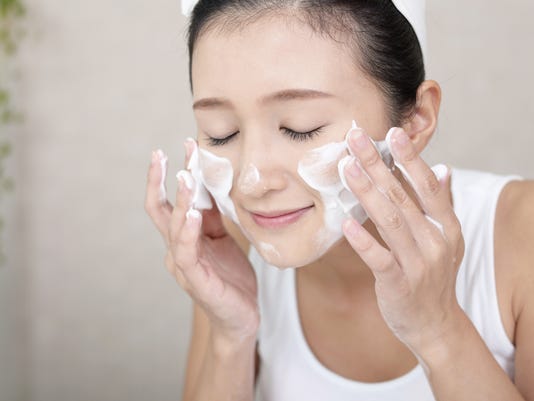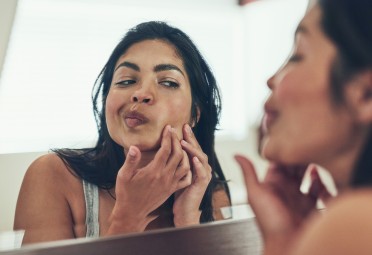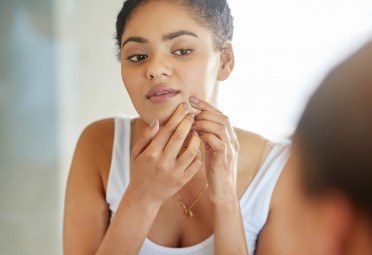Really?!!!
"We got the idea that a really useful way to look at people's appearance might be to look at something like acne, because, turns out that acne affects people pretty randomly."
"And we thought that acne was a good vehicle for investigating this relationship [the link between physical appearance and education and labor market outcomes] because a lot of people get acne and it happens to everyone regardless of their socioeconomic status."
"We’re hesitant to say that we find iron-clad proof."
Erik Nesson, economics professor, Ball State University, Indiana
"[Basically, acne] is associated with reduced participation in sports clubs and increased participation in non-sports clubs, suggesting a possible shift from physical to intellectual pursuits."
"Knowledge of long-term benefits associated with having had acne has the potential to reduce teen suicides."
"Our findings are consistent with a mechanism where severe acne limits socialization so much as to affect long-term outcomes that may depend both on studying and on sociability."
"Skin problems are also associated with increases in cumulative overall high-school GPA [grade point average] and cumulative science high-school GPA, and we find some evidence that skin problems are related to cumulative mathematics and science high-school GPAs."
"Skin problems are not consistently related to earnings among the entire sample, but skin problems are positively related to personal earnings for women and white women."
U.S. study, adolescent acne outcomes
"Overall, this is an interesting study in that it suggests that what might be considered as a disadvantage when growing up ends up translating into positive outcomes later on in life."
"In this regard, the finding contrasts with similar studies which show that other kinds of disadvantages [being short or not beautiful] are typically linked to labour market penalties."
Vera Brencic, economics professor, University of Alberta
 |
Many
youth need to treat skin conditions such as acne, which can be
exacerbated when pores on the surface of the skin become clogged.(Photo11: liza5450, Getty Images/iStockphoto)
|
And they found, convincingly enough to write with a high degree of confidence, that having acne in one's adolescent years was correlated with higher grade point averages alongside a higher likelihood of graduating from college and singularly for women, they detected through their study that evidence exists that having acne is associated with higher earning potentials for women.
There is a rational enough reasoning here, that teens with acne were uncomfortable with their appearance and preferred to shelter themselves from public view as much as possible, meaning they were less likely to socialize and likelier to spend that time on their studies. There you have it: problems with skin blemishes point to a more intellectually-flavoured lifestyle and that in turn equates with improved grades, more intensive academic studies and eventually, higher incomes.
 |
| Greatist |
That's the good news, and there was no way of ignoring the bad news, that acne strongly correlates with adolescent suicide; the detrimental effect of severe acne even while it seems that lighter bouts of occasional acne result in labour market success. If we're weighing quality of life as opposed to cessation of life, there's really no contest, is there?
The paper and its conclusion is considered one piece of a larger puzzle relating to work that explores how physical attractiveness matches with greater success in life outcomes, a well-studied phenomenon where it is recognized that comely people have a tendency to reach for greater success through their aspirational pursuits.
Professor Nesson partnered for this study with Hugo Mialon, both analyzing data collected by the Eunice Kennedy Shriver National Institute of Child Health and Human development where studies were run of adolescent development in waves from 1994-95. Information was available through that research relating to academic performance, perception of physical attractiveness, acne, and adding research that followed over the years, educational attainment and income.
Having acne through the adolescent years correlates with a 3.8 percent increase in chances of obtaining a bachelor's degree.
 |
| Grestist |
Abstract
We use data from the National Longitudinal Study of Adolescent to Adult Health to investigate the association between having acne in middle to high school and subsequent educational and labor market outcomes. We find that having acne is strongly positively associated with overall grade point average in high school, grades in high-school English, history, math, and science, and the completion of a college degree. We also find evidence that acne is associated with higher personal labor market earnings for women. We further explore a possible channel through which acne may affect education and earnings.
Hugo M. Mialon
Emory University - Department of Economics
Erik Nesson
Ball State University - Department of Economics
Labels: Academia, Bioscience, Employment, Skin Problems, Socialization, Teens

0 Comments:
Post a Comment
<< Home